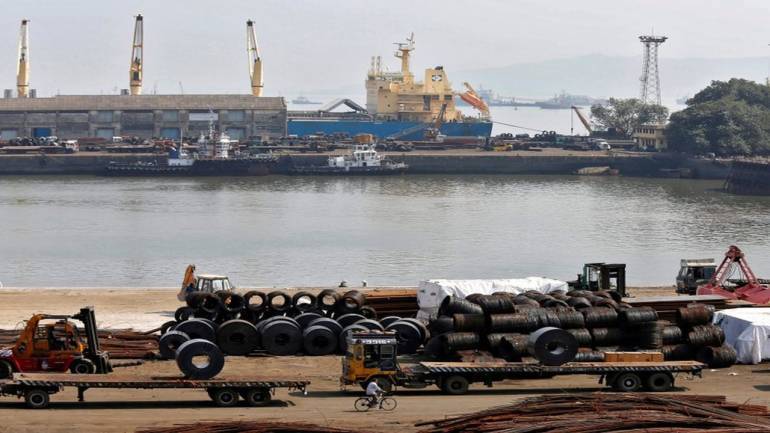Kolkata Port Trust, which owns an area as large as the London Docklands but uses less than half of it, is looking to rent out more of this land to boost profit.
India’s oldest operating port has hired property consultant JLL India to survey and digitize records of its land bank, Chairman Vinit Kumar said in an interview at his office in Kolkata. Kolkata Port owns about 4,500 acres (18 square kilometers), of which it directly uses about 2,000 acres.

Its total holdings are roughly the size of the derelict London Docklands, before bits of it were sold off starting around 1970 and today house the Canary Wharf development. The 150-year-old Kolkata Port is now focused on improving profitability after years of high costs.
It reported a profit of 600 million rupees last financial year, its first in about 15 years, due to rising cargo volumes, more efficient handling, and lower staff costs. Kolkata Port reduced headcount to about 3,600 from 6,000 ten years ago, and over the past five years it has created a 35 billion rupee fund that will be managed by Life Insurance Corporation of India for its 23,000 pensioners.
“We expect better profit next financial year,” Kumar said. “The economic slowdown has not impacted us much—we are still growing.”
The firm—which traces its port’s origins to the grant of trading rights to the British East India Company by the Mughal Emperor Aurangzeb—already rents out some land to companies including Hindustan Unilever Ltd., ITC Ltd. and Indian Oil Corp. Rent income of about 3 billion rupees ($42 million) accounted for 12% of Kolkata Port’s revenue for the year ended March 2019 and Kumar aims to double lease earnings in the coming years.
Kolkata Port estimates cargo traffic will increase 3% in the current financial year after a record 10% jump last year, partly because the coronavirus may impact iron ore exports to China. Early indicators of China’s economy in February confirm that the coronavirus outbreak has crippled production and consumption, as factories remain below capacity and transport is curtailed.
While it is still assessing the effect of the contagion, Kolkata Port is investing 8 billion rupees over the next two years to boost its annual cargo-handling capacity to 80 million tons from 70 million tons now.
Additional capacity, in areas such as liquid cargo, should move Kolkata Port’s ranking up from No. 5 in India in terms of cargo volume handled, Kumar said.










